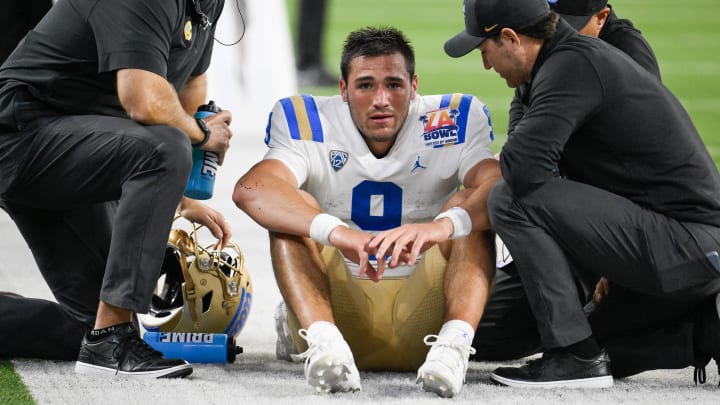UCLA Football: New Conference, New Challenges for Bruins

UCLA Football's transfer to the Big Ten Conference brings up a lot of questions. How will DeShaun Foster do as head coach? Will quarterback Ethan Garbers be able to lead the offense to greatness? Will there be a dropoff at defense with so many veteran players leaving?
While these are all valid questions, one topic seems to elude most fans' minds: how will all of this travel affect the players?
In the Pac-12 Conference, UCLA mainly stuck to the western United States, only going as far East as Colorado. That is about to change drastically in the Big Ten.
According to Bill Speros of Bookies.com, UCLA Football will travel about 22,048 miles during their debut year in the Big Ten. That's more than any other team in the conference, with Washington coming in second at about 17,522 total miles traveled. That's almost 5,000 miles less.
Even more dangerous is the 26 different time zones the Bruins will travel through. According to UCLA athletic director Martin Jarmond, he learned through discussions with sleep experts that time zones traveled are more of a challenge when it comes to disrupting a body's biorhythms.
Fortunately, UCLA is doing its best to solve this issue. According to Ben Bolch of The LA Times, Bruins staff are making sure to select departure times to "best keep their players performing at an optimal level." This includes leaving time after each game to have the player enjoy rest and relaxation before traveling.
The best example of this is after the opening game against Hawaii on August 30. Instead of flying back immediately, UCLA will stay in Honolulu for an extra day.
None of UCLA's larger trips will be scheduled back-to-back, meaning they won't be able to stack them. This is true for every team in the conference.
The team that will travel the least amount of distance is Indiana, who will only be traveling around 4,894 miles. Ironically, 3,556 of those miles will accrue when they head to Los Angeles to face UCLA.
Strangely, the shortest distance traveled between intraconference games also belongs to UCLA when they face rival USC. The round trip distance between the Rose Bowl and LA Memorial Coliseum is only 24.56 miles.
The 2024 season is certainly going to be a year of transition for the Bruins. A new coach, new conference, and new quarterback raises as much concern as it does excitement. Hopefully, UCLA will be able to triumph in the end.
More UCLA Football: How Injuries Have Impacted the Bruins' Tight End Room
